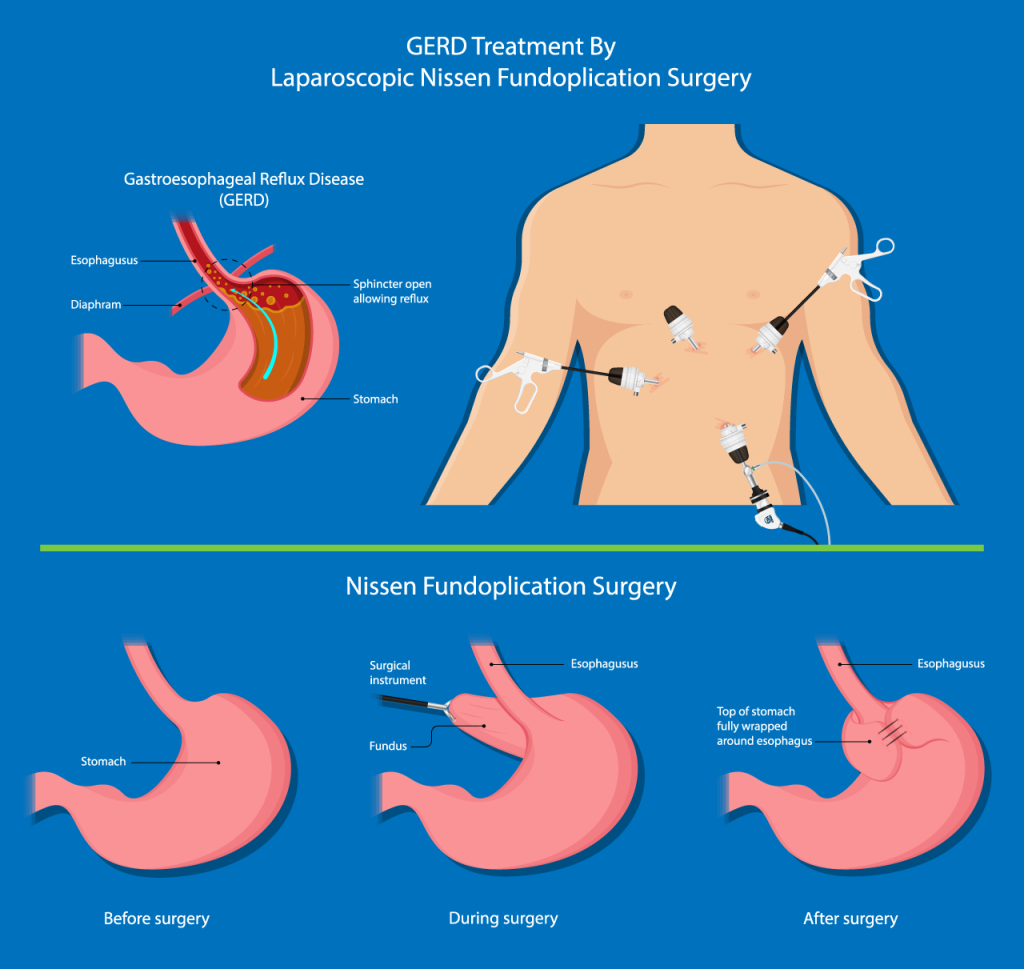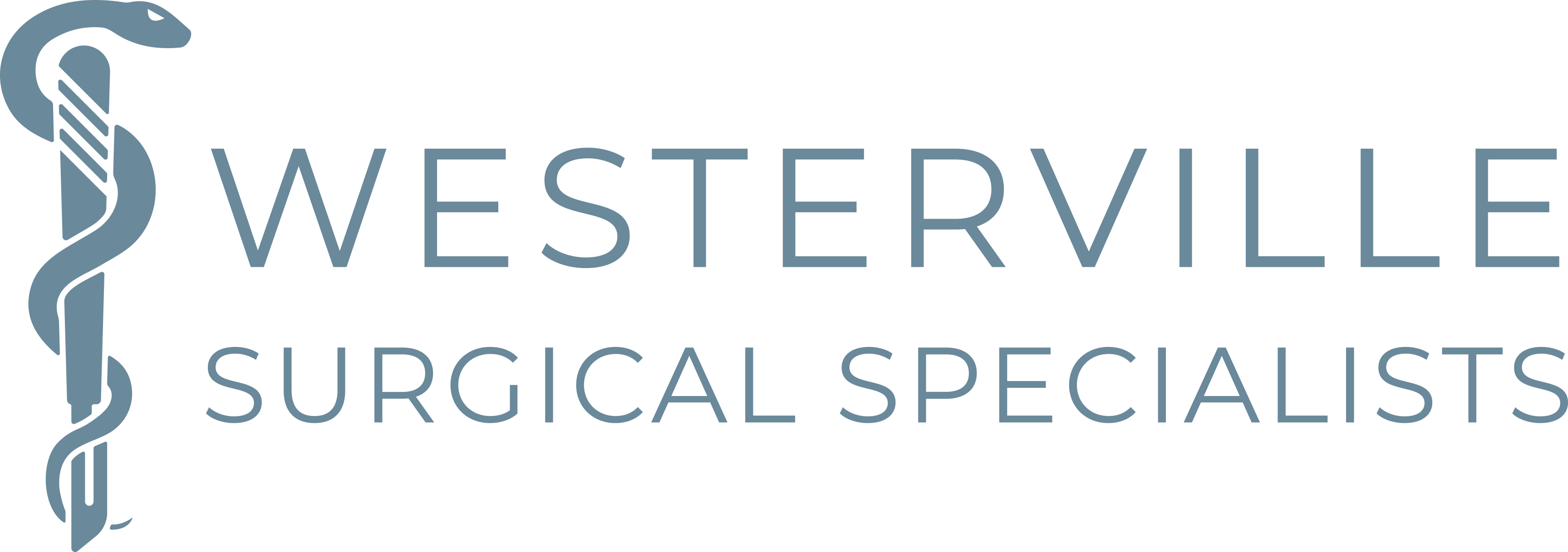Anti-Reflux Surgery
Gastroesophageal Reflux Disease (GERD, or simply, Reflux) is a condition that happens when some of your stomach juices flow back into your esophagus (the tube that connects your mouth with your stomach). It is a very common condition. Many adults in the United States have heartburn or GERD at least once a month.
You have a small ring of muscle at the lower end of the esophagus called the lower esophageal sphincter or LES. This valve opens to let food into the stomach and then closes behind it. Normally, this valve closes immediately after you swallow. This keeps the stomach juices, which contain a lot of acids, from flowing backward into the esophagus.
GERD happens when the LES valve does not work properly. This allows acid to flow backward and burn the lower esophagus. Your esophagus becomes irritated and inflamed, and the acids can eventually damage it. The cells that line the inside of the esophagus can start to change as a result of the constant contact with acid stomach juices. Doctors call this “Barrett’s esophagus,” and having it raises your risk of getting cancer in the area.

The most common operation for GERD is called a fundoplication. If you have a hiatal hernia, your surgeon fixes this first. Then they “wrap” the top part of the stomach around the lower end of the esophagus. This makes the LES valve stronger, just like wrapping extra material or tape around a tube. Making the LES valve stronger helps prevent stomach juices from flowing back into the esophagus.
